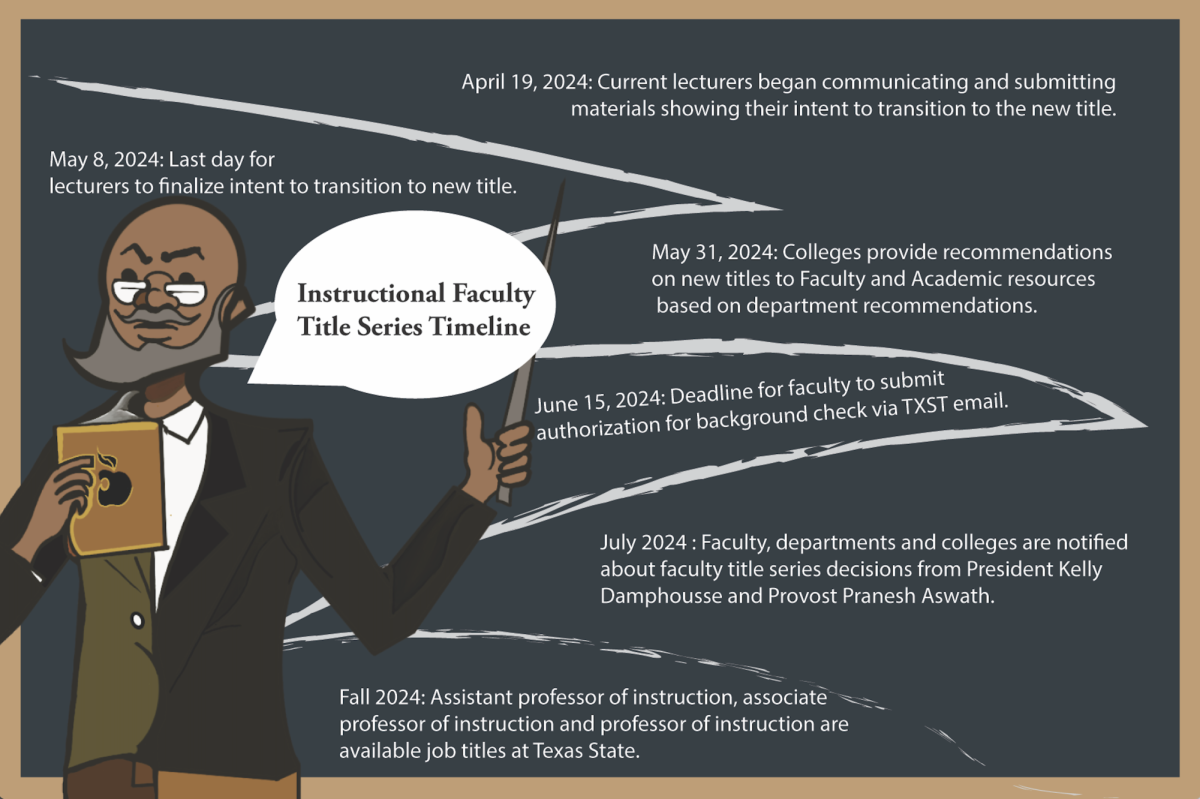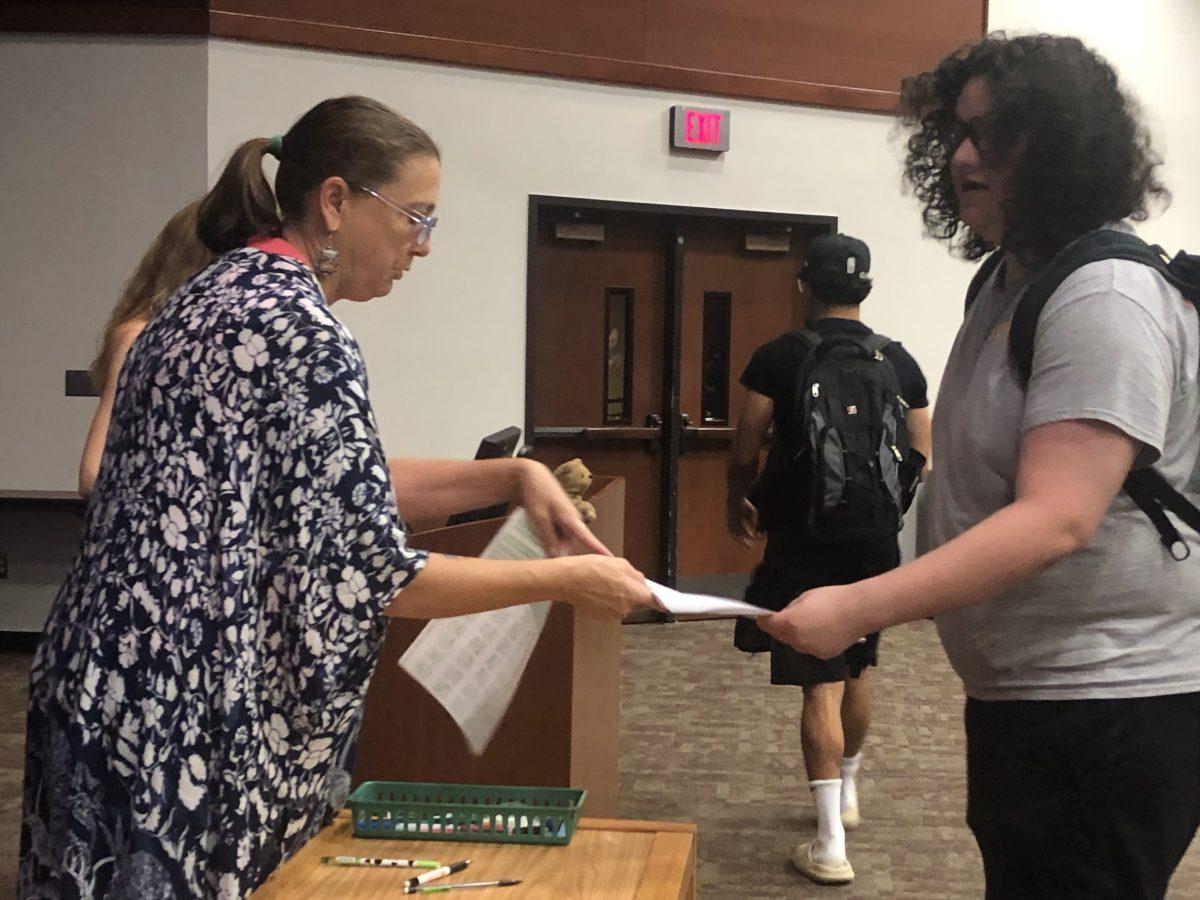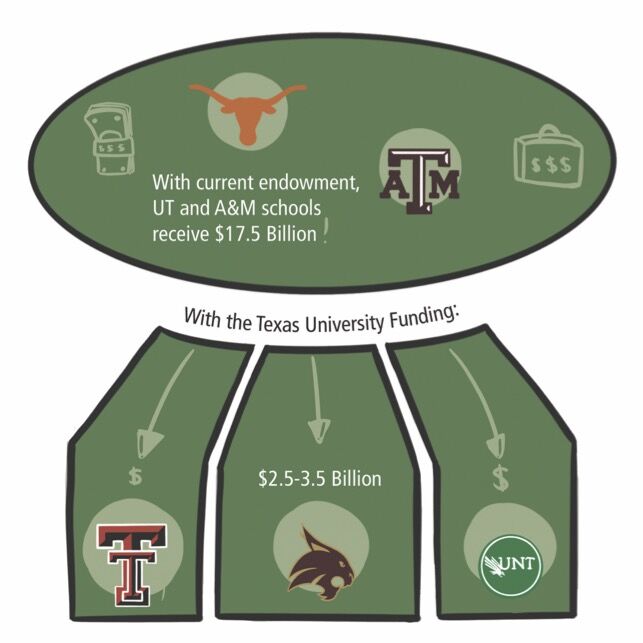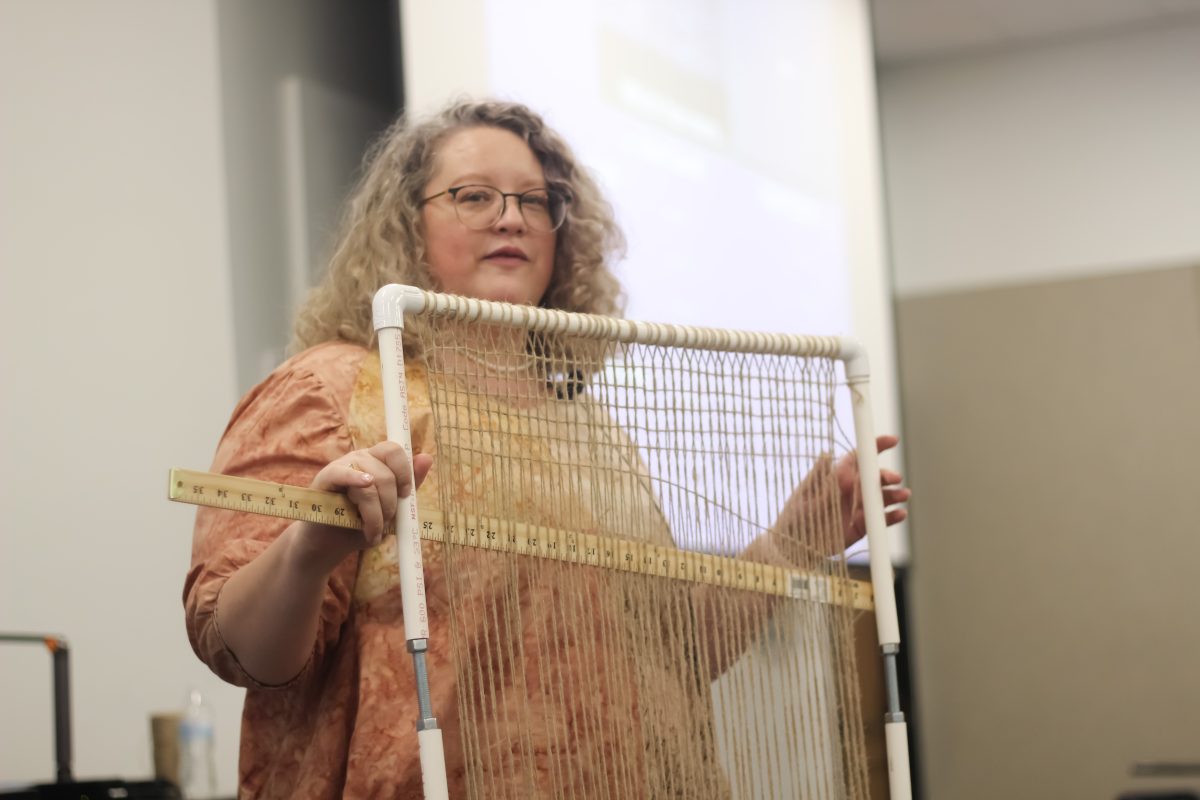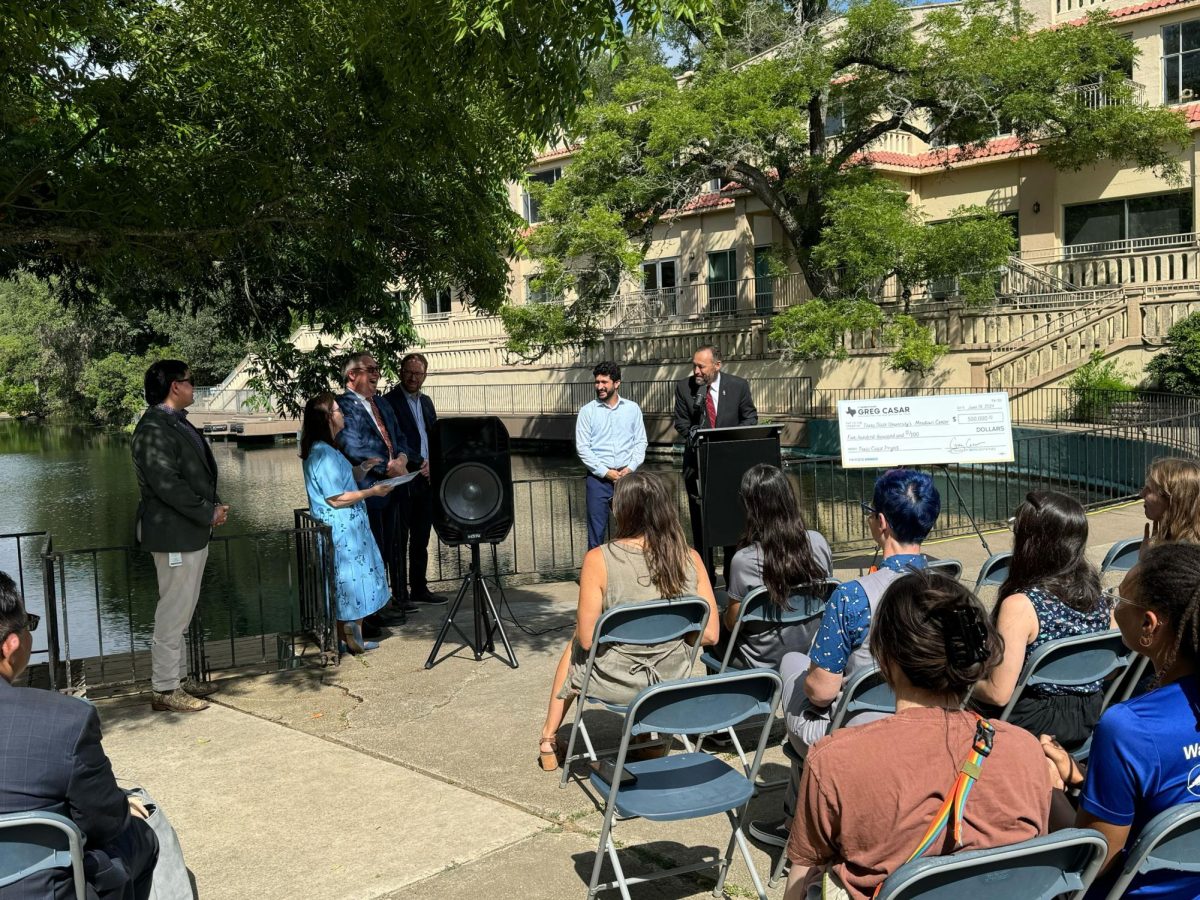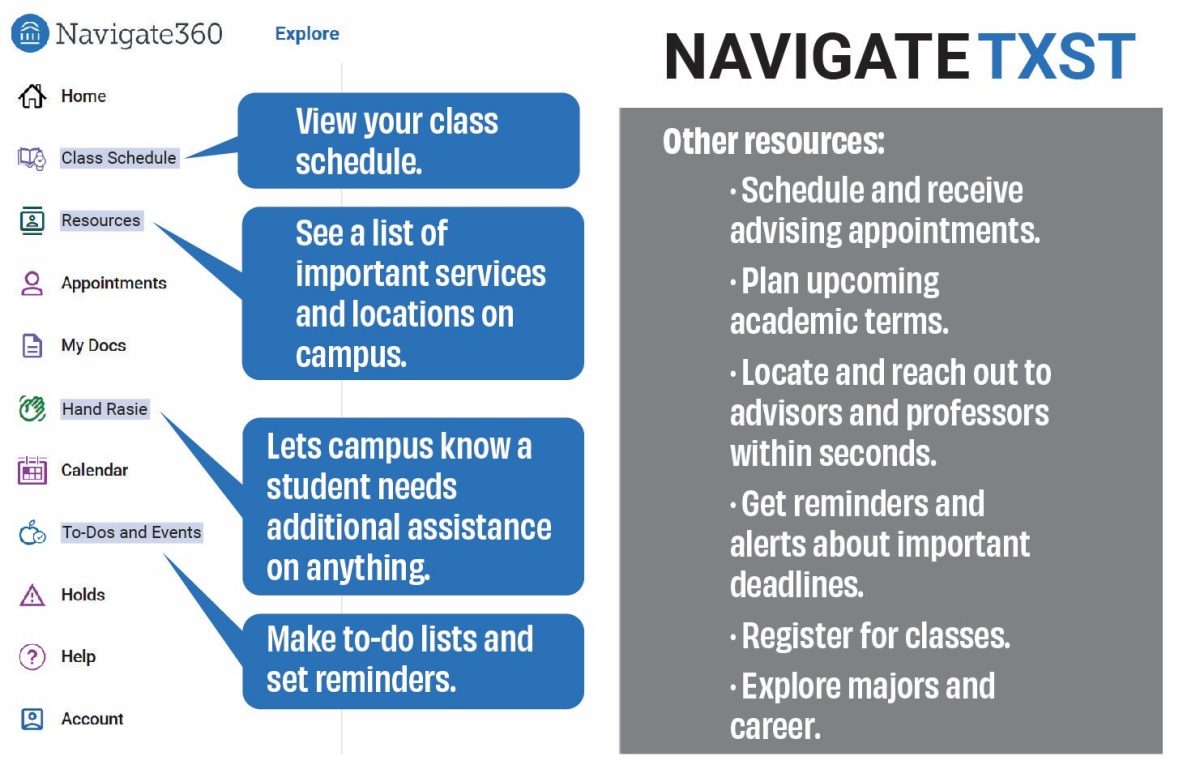Texas State’s Faculty Senate heard a presentation on Title IX policies and procedures and discussed possible charges to send to the university’s Governance Committee at its Sept. 29 meeting.
Title IX prohibits any form of discrimination in higher education that is based on race, gender, sex, ability or age. It provides clear legal actions that must be taken should students or faculty experience this type of discrimination. The emphasis on this training comes after Texas State was accused of underreporting campus crimes. Since the incident, training and awareness campaigns have become heavily prioritized.
Assistant Vice President for Institutional Compliance and Chief Compliance Officer Bobby Mason opened the presentation with statistics stating one in five women and one in 10 men experience sexual assault in their first few months of college, and 80% of them never tell others about the assaults. He then introduced his supervisor, Alexandria Hatcher, Texas State’s director and coordinator of Title IX compliance, who began the training portion of the meeting.
“When in doubt, just report” was a consistent statement throughout the training. Hatcher emphasized the importance of her office receiving all the information available, so they may properly provide resources to victims. Faculty at Texas State who fail to report discrimination are made aware of and subjected to immediate termination under Senate Bill 212.
“I know the terms are scary, but a lot of reason why we’re here is because for some reason we keep on missing out on what it [a Title IX violation] looks like and what it sounds like in the workplace, in your classroom,” Hatcher said. “So basically, if it sounds like it could be something, go ahead and report it.”
Hatcher then described instances of why faculty members might be hesitant to report, describing situations when students discuss previous trauma during class assignments, overhearing conversations about conflicts that happened at a party or a coworker talking about an abusive spouse. It was reiterated that instances of discrimination or abuse involving a member of the Texas State community must be reported.
Faculty Senate member Andrew Ojede questioned police discrimination against students who protested white supremacy groups in 2019, asking how it would be handled by Title IX. Because the incident was never reported to the Title IX office, Hatcher said she could not give an answer specific to the situation but told the Senate that Title IX investigators look deeply into cases to take actions needed to protect students. She also offered to have another conversation about the incident later on. Mason added that this situation was another instance focusing on the importance of reporting any form of discrimination.
“If anybody believes they’ve been victim of harassment or discrimination, specifically combined individual and the university community, those individuals absolutely need to be referred to Alexandria and her staff,” Mason said.
Hatcher then led the Senate through the process of reporting, looking through forms and answering any questions they had.
Later, the Senate discussed a possible charge to be put forth to the university’s Governance Committee. A concern for a lack of shared governance between faculty and their supervisors was a key part of the conversation. While the Senate had been assured by representatives, such as Provost Gene Bourgeois and President Denise Trauth, that their voices mattered in the governing of Texas State, many faculty members expressed dissatisfaction with the state of their governance.
Nicole Wesley, chair of the Academic Governance Committee and a Faculty Senate member, resonated with the Senate’s concerns and plans to discuss the charge with the rest of the Governance Committee.
“We’ve talked about governance and talked about, you know, what’s the president’s view of governance, what’s the provost’s view and we sort of see some semblance and sort of governance news-speak from the top down,” Wesley said. “I think when you’re looking for things like that, it needs to come from the top down, it needs to come from the bottom up, it needs to come from the middle and radiate out so that it can suffuse the entire institution.”
The Senate will continue to discuss shared governance with the committee. After more development, they will officially send forth the charge at a later date.
Faculty Senate hears Title IX presentation
October 1, 2021
A view of the LBJ Student Center from outside the building’s ballroom, which will serve as Texas State’s mass vaccination site.
Donate to The University Star
Your donation will support the student journalists of Texas State University. Your contribution will allow us to purchase equipment and cover our annual website hosting costs.












